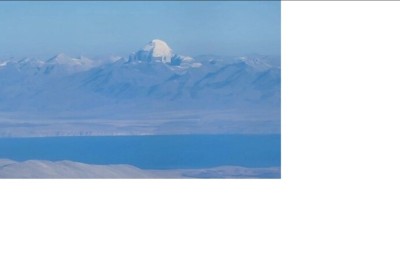SC backs consolidation of Mathura temple-mosque land suits
SC backs consolidation of Mathura temple-mosque land suits ByUtkarsh Anand Jan 10, 2025 11:39 AM IST Share Via Copy Link A bench comprising Chief Justice of India (CJI) Sanjiv Khanna and Justice PV Sanjay Kumar said that the grouping of cases allows a more streamlined and centralised adjudication
The Supreme Court on Friday expressed reluctance to interfere with a judicial order consolidating multiple lawsuits over the Sri Krishna Janmabhoomi-Shahi Eidgah Masjid land dispute in Mathura, observing that such consolidation serves the interests of both parties and reduces the risk of contradictory rulings.
 The matter was adjourned for further hearing in April 2025. (ANI)
The matter was adjourned for further hearing in April 2025. (ANI)
A bench comprising Chief Justice of India (CJI) Sanjiv Khanna and Justice PV Sanjay Kumar said that the grouping of cases allows a more streamlined and centralised adjudication. Observing that the larger question of the tenability of such suits in light of the Places of Worship (Special Provisions) Act, 1991, is pending before the apex court, the bench emphasised that challenging every procedural order is unnecessary.
“Why should we interfere with the order of consolidation in the high court? We are examining the larger issue. How does it make a difference? It’s better if all similar suits are taken together. Everything is not to be contested,” said the bench.
The advocate representing the mosque management committee, Tasneem Ahamadi, argued that the consolidation of cases could have a material impact and sought adjournment.
The court remained firm in its stance. “Multiple proceedings obviously make a difference. It’s better for you and the other side too. Let it be. If required, we will adjourn it, but in our opinion, this doesn’t need to be contested,” said the bench.
The matter was adjourned for further hearing in April 2025.
The matter arises from lawsuits aimed at reclaiming the 13.37-acre land in Mathura, where the Shahi Eidgah Mosque stands. Hindu plaintiffs, including the Shri Krishna Janmabhoomi Trust, seek to annul a 1968 compromise between the mosque committee and the Shri Krishna Janmasthan Seva Sangh, which allowed the mosque to remain adjacent to the Krishna Janmabhoomi Temple.
The legal battle intensified in July 2023 when the Supreme Court began hearing challenges to a May 26, 2023, Allahabad high court order transferring all suits filed by Hindu parties to itself. The mosque management committee opposed this transfer, citing financial and logistical burdens, as the high court is 600km from Mathura.
In December 2023, the high court ordered a survey of the mosque premises following a plea from the Hindu plaintiffs, who argued that the mosque holds evidence of its past as a Hindu temple. However, in January 2024, the Supreme Court stayed the survey, deeming the request “vague” and raising significant legal questions. This stay remains in effect.
The Supreme Court’s decision to consolidate the Mathura cases follows its December 2024 nationwide directive, issued by a special three-judge bench led by CJI Khanna, restraining lower courts from entertaining fresh suits or ordering mosque surveys related to historical temple sites. This interim directive emerged amid a surge in litigation by Hindu groups seeking to reclaim religious sites, such as Varanasi’s Gyanvapi Mosque, Shahi Eidgah, and Ajmer Dargah.
Central to these disputes is the 1991 Places of Worship Act, which maintains the religious character of places of worship as they stood on August 15, 1947, barring the Ram Janmabhoomi-Babri Masjid site dispute which was ongoing at that time. The law has become a focal point in the legal battle, with one side challenging its constitutionality and another advocating for strict enforcement.
Hindu petitioners argue that the law prevents redress for historical wrongs, alleging it imposes unequal restrictions on Hindu, Buddhist, Jain, and Sikh communities. Muslim groups warn that overturning the Act could jeopardise communal harmony and undermine India’s secular fabric.
In this matter, the Union government has been directed to clarify its stance on the Act before February 17. Although the Supreme Court admitted a batch of petitions challenging the 1991 Act in March 2021, the Centre has refrained from filing a definitive response.



















Comments
0 comment